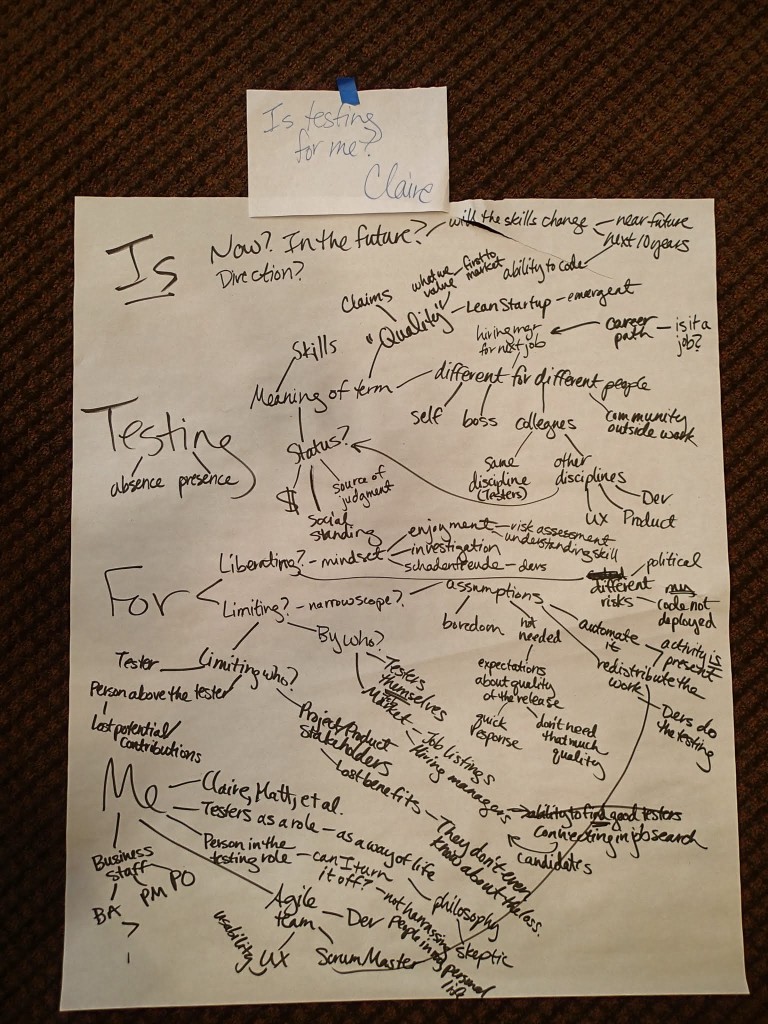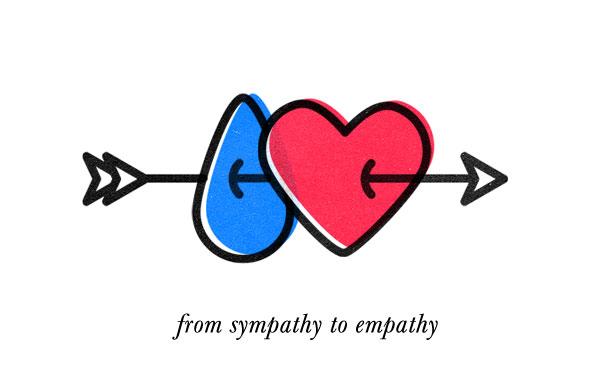I heard that Gerry Weinberg has an exercise called “Mary had a little lamb,” in which you analyze each word in the sentence to elicit implicit meaning that might be important. This sounded interesting enough to try, so when the opportunity came to propose a topic at Test Retreat 2013 I went for it. My topic “Is testing for me?” didn’t end up formally scheduled but made a nice interstitial topic to discuss with those milling about in the main room.
I chopped the sentence into separate words and wrote them top-to-bottom on a large sticky note. Then, instead of giving some sort of prepared remarks, I elicited brainstorming from the gathered participants. Having received interesting feedback on my professional and personal strengths at Agile2013 that had left me questioning how best to use my evil powers for good, I wanted to hear how others were thinking about the testing field and how it fit them.
The resulting scrawled notes ended up a mindmap, the path of least resistance for me. I won’t say the discussion solved all my problems, but it did give me some direction for future exploration – exploration that might also be helpful to a newbie wondering whether to pursue a career in testing.
 Which brings me to some interesting recent events:
Which brings me to some interesting recent events:
- the first ISST webinar by Ben Kelly
- Our second meetup for Software Testing Club Atlanta
- Randomly running across a new tester on Twitter
- This testing blog post I read recently
I started composing a list of things I’d recommend to people just starting out as testers to help them to evaluate whether to continue. I wanted to encourage them to jump right in but also think big, not waiting them to wait 5 years to reach out to the wider world of testing (like I did).
Here’s my current list. I blogged about various experiments I tried, so you can read for yourself to see what it’s like to select what’s a good starting point for you.
- First things first: Whatever you try, frequent retros
- Social media, especially Twitter
- Try exploratory testing
- Weekend Testing
- Chatting with other testers online
- Books, Podcasts, Blogs, maybe even writing for some ezines or websites?
- Meetups, local events, Lean Coffee, conferences – attend (in person or virtually), live-tweet a conference, volunteer, speak (lightning talk, whole session, workshop, tutorial)
- Open Source, Hackathons, innovation days, etc
- uTest/Applause? I’ve heard of this but not tried it. Seems like a lower barrier to entry/way to get started?
- And, last but not least, who do you want to be?
No matter how many times I think I’ve found all the meaning in my testing career, suddenly I realize there are more layers… but like a parfait, not an onion.
Donkey: Oh, you both have LAYERS. Oh. You know, not everybody like onions. What about cake? Everybody loves cake!
Shrek: I don’t care what everyone else likes! Ogres are not like cakes.
Donkey: You know what ELSE everybody likes? Parfaits! Have you ever met a person, you say, “Let’s get some parfait,” they say, “Hell no, I don’t like no parfait”? Parfaits are delicious!
Shrek: NO! You dense, irritating, miniature beast of burden! Ogres are like onions! End of story! Bye-bye! See ya later.
Donkey: Parfait’s gotta be the most delicious thing on the whole damn planet! – Shrek
Thanks for the inspiration to write, EmJayKay80 and Niyi!
